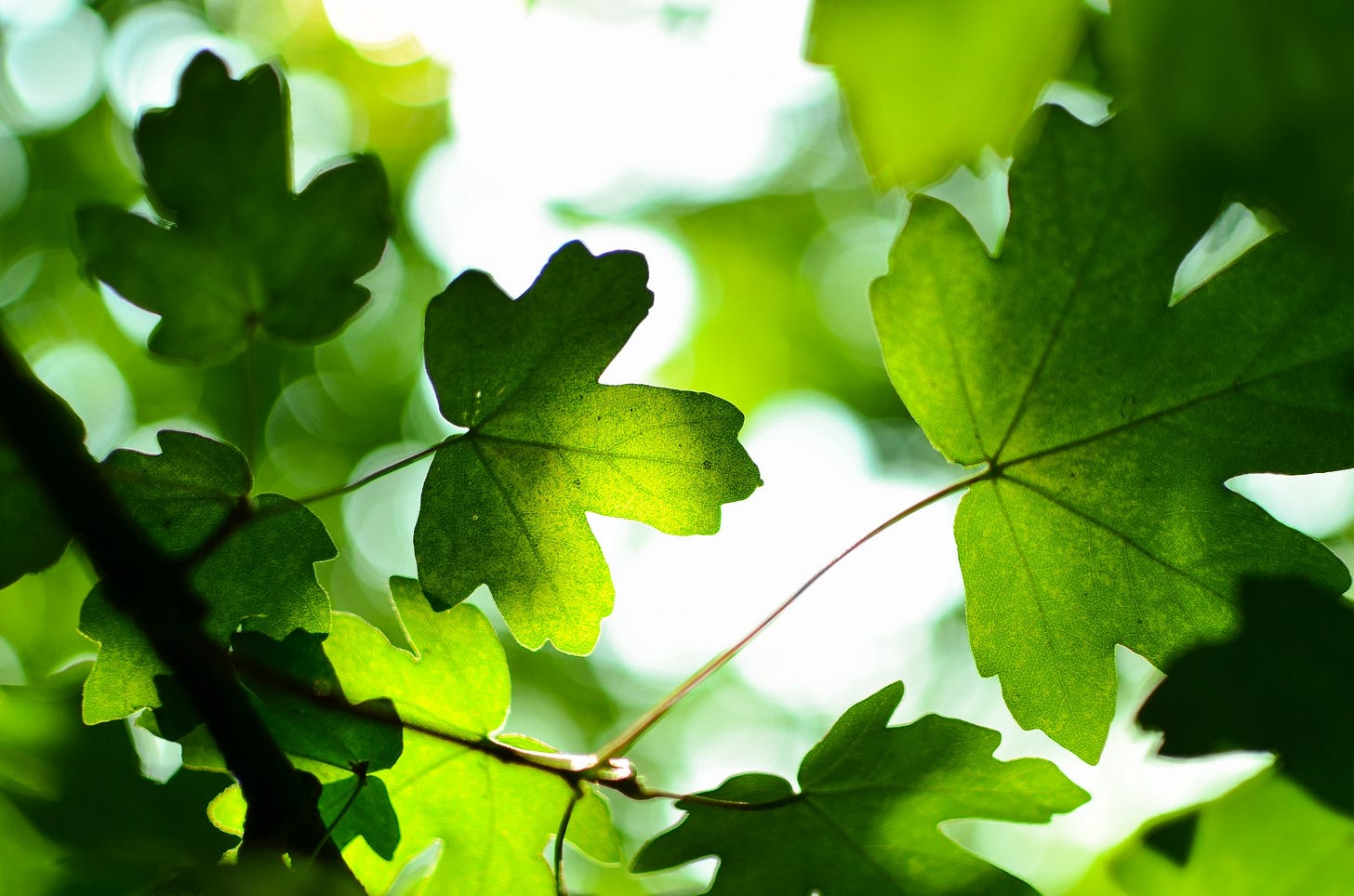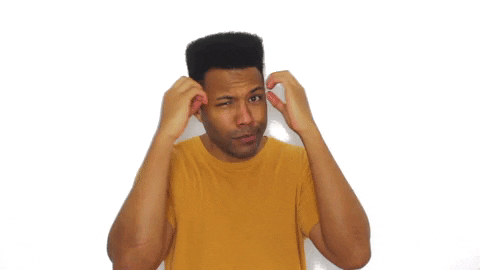Six Sentences that Made Me Get Sober
#4 “What’s the worst thing that would happen if you aren’t alcoholic and you quit drinking anyway?”

Quitting drinking sounds simple, but is actually complicated. It’s not just about stopping one habit, it’s a process of changing cultures. You switch from the drinking, smoking, carefree side of society to the sober, healthy, conscientious side. It’s uncomfortable and it takes a lot of work.
The nature of addiction makes it difficult to see you have a problem. There is an inbuilt forgetfulness, which prevents you from remembering the pain of your last hangover or blackout. And after a short period of recovery, you find yourself craving a lovely cold pint in the beer garden again.
Now I’m a few years sober I can pinpoint dozens of signs that booze was an issue, way back in my teens, but at the time I was oblivious. Strike that, I was proud. Drinking was part of my identity from the very first swig. I wanted to be fun like Eddie and Patsy in Ab Fab. Unconventional and creative like Withnail and I. Sobriety was for squares.
Twenty years later, regularly suffering hangovers and drunken domestic drama, I still had little idea my drinking was an issue. I thought my problem was that I kept falling in love with heavy-drinking men. I didn’t question why this was, until after I got sober.
Addiction is bolstered and nurtured by denial. You seek out partners who drink the same (or more than) you, and it doesn’t seem you have a problem. This is why, if you find yourself eager to escape this lifestyle, you are one of the lucky ones.
Although it may not feel like it, at first.
I was lucky in this way. The idea that I was not living right, rose up from deep within me, and I began trying to change my habit. I worked on breaking the dependence I had developed over decades on wine and beer to help me through life.
And it was mostly the comments of my friends that offered me a way out.
Here are the sentences that pierced my denial and allowed me to finally remember that alcohol didn’t work for me, and find a better way to live.
1. “You don’t still stay up all night drinking do you?”
This was a dear friend from my Master’s programme. A woman I respected deeply, and who I had never drunk seriously with.
She had come to visit me, and I had the kind of hangover that leaves you gasping for breath each time you stand. Any other friend I would have canceled, but this friend was entirely unflakey. Her word was her bond and I admired that and wanted to emulate it.
And so she arrived, and we walked around the city as I did my best to show her a good time. But I felt awful - nauseous and itchy - and so I had to admit that I was ill from too much alcohol the night before.
“You don’t still stay up all night drinking, do you?” she said.
And it was the genuinely curious nature of the question. The way she hadn’t considered it a possibility. When to me, it was the most normal thing in the world.
“No!” I lied. And I felt resentful because I felt ashamed. Which I know wasn’t her intention.
But her comment had hit a target that lived inside me, locked in a forgotten chamber.
There was a different way to live and she was proof of it. My mind played the comment over and over again.
You don’t still stay up all night drinking, do you?
2. “The merry-go-round named denial.”
I read this on a pamphlet someone handed me at an Al-Anon meeting. I was there in tears, after my beloved boyfriend came home drunk again, after swearing he would stay sober. I was desperate to try and make him quit booze. He was my first love and we’d recently gotten back together, but our relationship was failing again, for the same reasons as before: because of his drinking.
Sure, I liked a drink, but booze didn’t make me turn nasty. He went to the dark side when he was drunk. And that was the problem. Drinking a lot was okay, but behaving like a maniac after you had drunk too much was not.
On a table at the meeting, I found a leaflet that described my experience exactly. It described a play called The Merry-go-round named denial, which starred a problem drinker, and the supporting cast of their family and friends. This play explained the doublespeak and insanity of addiction. It helped me to understand my part in the drama of my life. And it helped me to understand the doublespeak inherent in addiction.
Every time my boyfriend lied to me, I fell for it. Not because I was a fucking dumdum idiot. And not because he was a dreadful lying turd. But because when he lied to me, he was telling the truth.
When the drinker says they are never going to drink again, they mean it.
That is the nature of addiction.
The merry-go-round named denial.
3. “The only requirement is a desire to stop drinking.”
Soon after my foray in Al-Anon, I went to an AA meeting. I had another killer hangover and was reeling from another doozy with my boyfriend. I knew I couldn’t keep living this way, but I also didn’t really believe I was an alcoholic.
I told this to anyone who asked.
“My drinking isn’t that bad.”
Always suspicious-sounding from a visitor at an AA meeting. (Even the ones that really aren’t alcoholics!) And the friendly strangers I met nodded and smiled and handed me pamphlets and phone numbers.
“My drinking is actually better than it ever has been,” I added, bewildered. Because it was true. As a teen, I was frequently off my rocker. These days I only blacked out once or twice a year!
“The only requirement is a desire to stop drinking,” someone said to me, reciting one of AA’s traditions, though I didn’t know it then.
A door of opportunity opened. I realized that this program was here for me if I wanted to get sober. All I needed was a desire to stop drinking. And didn’t I have that? Some of the time, at least.
It was enough to get me on the path. For a while, at least.
The only requirement is a desire to stop drinking.
4. “What’s the worst thing that would happen if you aren’t an alcoholic and you quit drinking?”
After that meeting, I got drunk a few more times, before I found myself back at AA. Hungover and defeated again, I met a smart American woman who invited me for coffee and told me her story.
I nodded along, relating heavily, but I still couldn’t get over that big word. I couldn’t honestly identify as ‘an alcoholic’. Even though she did, and her drinking sounded similar to mine. It was confusing.
“What’s the worst thing that would happen if you aren’t an alcoholic and you quit drinking?” she asked, and I shrugged.
“People would laugh at me?”
“And?” she said, and I couldn’t answer. And what?
It wasn’t the end of the world to be laughed at. (Though I still don’t like it.) And if I could tolerate people not understanding, and finding my decision a tad ridiculous, I could solve my biggest problem.
Wow.
What’s the worst thing that would happen if you aren’t an alcoholic and you quit drinking anyway?
5. “Addiction is the only disease that tells you that you don’t have it.”
My brain exploded the first time I heard this. How deeply it explained my experience. Because two or three days after the desperate hangover took me to AA, I laughed at the idea of myself having a drinking problem.
Me, an alcoholic? Absurd!
But hadn’t I taken myself to the meeting? Twice? Hadn’t I agonized over how I was ever going to end this habit of getting smashed and acting like an asshole?
I had.
The merry-go-round named denial pamphlet explained the doublespeak inside my head. It allowed me to begin to see how addiction worked within my mind and drove my thoughts.
Addiction is the only disease that tells you that you don’t have it.
6. “Just don’t drink today.”
No burgeoning alcoholic wants to imagine their life without beer forever. Like everyone who gets sober, I clung to the ‘one day at a time’ mantra as though it were a life ring. Which, of course, it was.
Maybe I’ll drink tomorrow, I’d tell myself as I eyed cold beer thirstily. But I won’t drink today.
The thought of never again relaxing into a cold pint of beer was simply too much to bear in those early days, and I’m sure I wouldn’t have managed to abstain if I had known how long not drinking would go on for.
Six years on, I’m so grateful I broke my beer dependency before it got any worse.
Just don’t drink today.
These days, I couldn’t care less about alcohol. I drink alcohol-free beers often, and even they don’t trigger any kind of longing. It’s a total non-issue, which is pretty incredible given my decades-long love affair with booze. It took a long time to get here, and it wasn’t easy. But I’m really glad I stuck to the sober path.
So if you’re freshly abstinent, and struggling, keep going. You only have to get through today without a drink. And if you’re a long time sober and struggling, then keep going! The bad times pass! And if you stay sober, you can help yourself and your loved ones get through without the added complications of hangovers, hangxiety and drunken dramatics.
And if you are willing, I’d love to know the sentences that helped you to quit. Or at least nudged you in the right direction.
Thanks for reading, and if you want to support my writing, please share with friends you think might like this post.
If you need help to stop drinking you’re not alone.
If you’re ready to try something different, try my alcohol experiment.
Do whatever it takes to stay sober for 30 days: go to your doctor, try Smart or AA or Hip Sobriety or Soberistas. Read beautiful hangover. Listen to Recovery Elevator and SHAIR podcasts. Read This Naked Mind.
There is a whole community of people just waiting to help you. Reach out. Something better is waiting.
Sign up for more from me at beautifulhangover <3
Chelsey Flood is the author of Infinite Sky and Nightwanderers, and a senior lecturer in creative writing at UWE She writes about freedom, addiction, nature and love.
She writes about being late-diagnosed autistic at Polite Robot.





Thanks for posting this! I can relate to a lot of it. I didn't hear many things from other people, but I did find myself drawn to stories about people in recovery (a book about writers who went to AA, podcasts on alcohol, etc). For me it was brother who had the problem, not me. I told myself I was looking into it out of concern for him. When I read the big book after going to a meeting, that's when a lot of phrases clicked and I started to be more honest with myself. Of the quotes you mention, I had a similar experience with the concept of "so what if you aren't an alcoholic but you just don't drink for a while?" When I thought about it that way I realized there was no excuse not to give not drinking a try and see what happened...
"One drink is too many and a hundred is not enough" pretty well captured where I was in life and that needed to change if I wanted to continue on